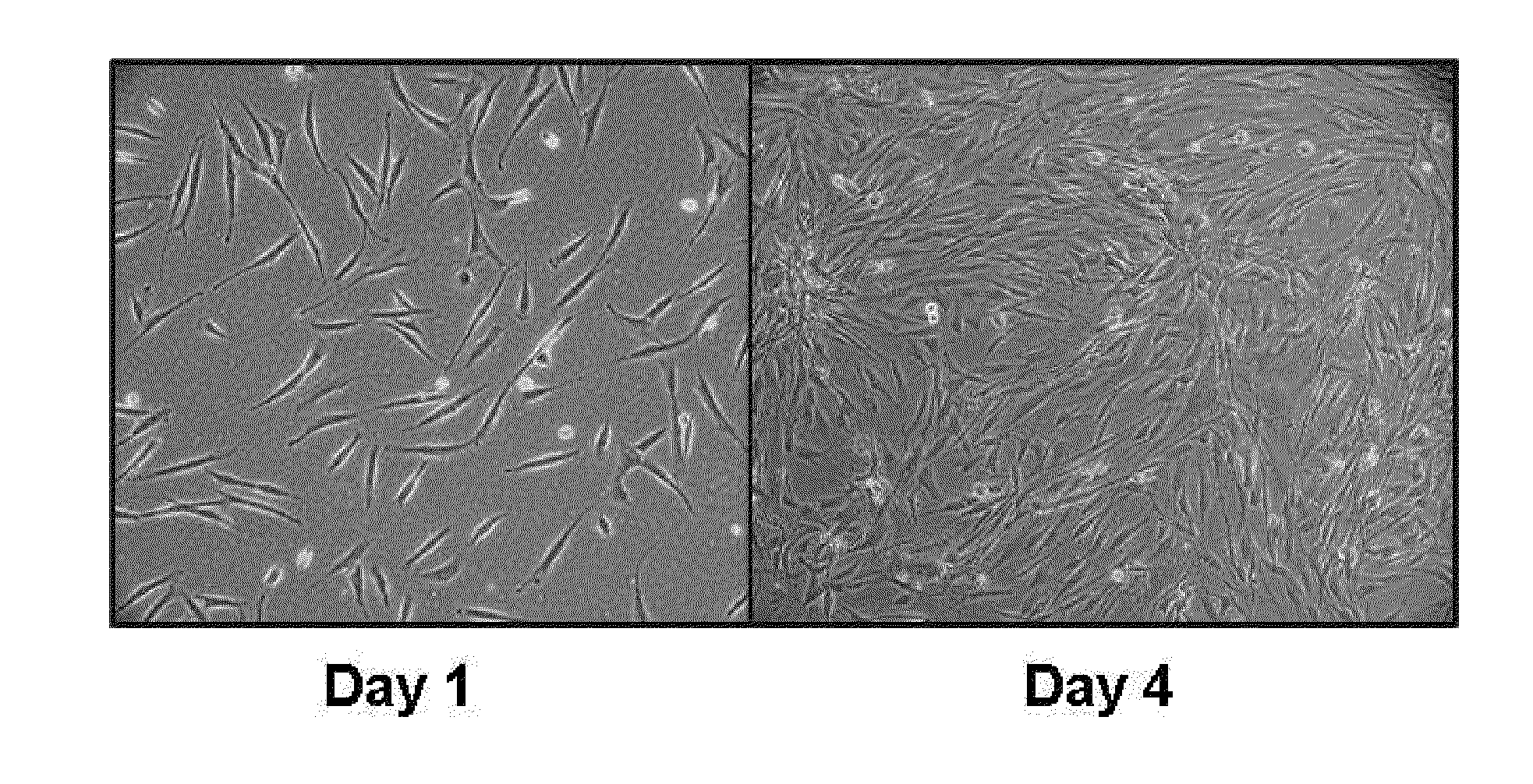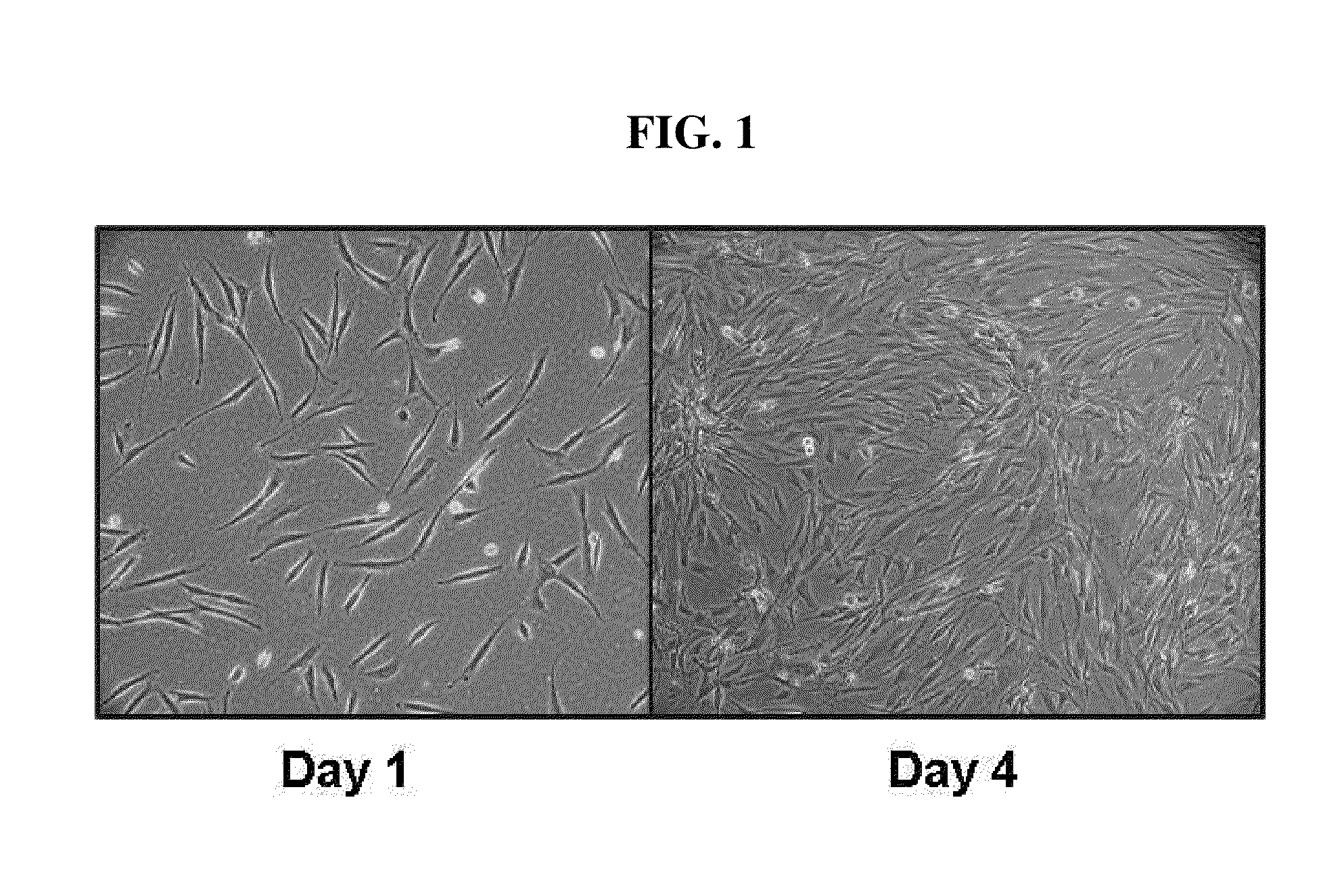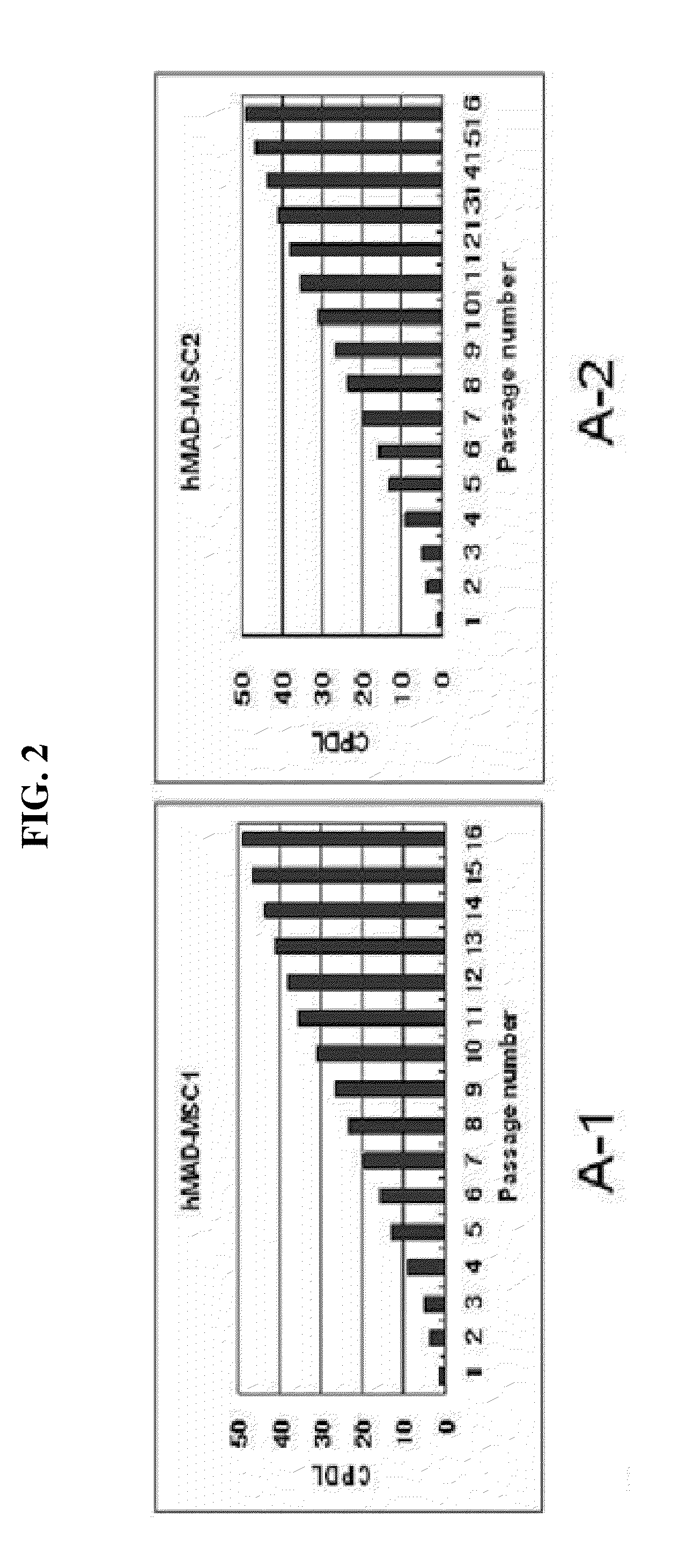Multipotent stem cells derived from human adipose tissue and cellular therapeutic agents comprising the same
a technology of human adipose tissue and stem cells, which is applied in the direction of skeletal/connective tissue cells, drug compositions, metabolic disorders, etc., can solve the problems of difficult culture without inducing differentiation, difficult to culture, and ineffective use of efficient use of stem cells, etc., to achieve high proliferation rates
- Summary
- Abstract
- Description
- Claims
- Application Information
AI Technical Summary
Benefits of technology
Problems solved by technology
Method used
Image
Examples
example 1
Isolation of Multipotent Stem Cells from Adipose Tissue
[0115]Adipose tissue was isolated from women's breast tissue distributed by Breast Cancer Center, Seoul National University, and washed with PBS and then finely cut. The cut tissue was digested in DMEM media supplemented with collagenase type 1 (1 mg / ml), at 37° C. for 2 hours. The digested tissue was washed with PBS and then centrifuged at 1000 rpm for 5 minutes. The supernatant was suctioned off, and the pellets remaining on the bottom were washed with PBS and then centrifuged at 1000 rpm for 5 minutes. The resulting pellets were filtered through a 100 μm mesh to remove debris, followed by washing with PBS. The resulting cells were incubated in a DMEM medium (10% FBS, 2 mM NAC, 0.2 mM ascorbic acid). After one overnight period, unattached cells were washed with PBS, and cultured in Keratinocyte-SFM media (containing 2 mM NAC, 0.2 mM ascorbic acid, 0.09 mM calcium, 5 ng / ml rEGF, 50 μg / ml BPE, 5 μg / ml insulin and 74 ng / ml hydroc...
example 2
Examination of Proliferation Rate of Adipose Tissue-Derived Stem Cells
[0116]Adipose tissue was obtained from each of different human breast tissue samples according to the isolation method as described in Example 1. In order to examine the proliferation rate of multipotent stem cells derived from the isolated human breast adipose tissue, 2×105 of the cells were seeded into a T-75 flask and then measured for CPDL (cumulative population doubling level) and expressed as a function of passage number. CPDL is an index indicative of the proliferation rate of cells and expressed as the following equation.
CPDL=ln(Nf / Ni) / ln2, wherein Ni: the initial number of seeded cells; and Nf: the final number of cells.
[0117]As a result, as shown in “A-1” and “A-2” of FIG. 2, the adult stem cells (hMAD-MCS1 and hMAD-MCS2) according to the present invention showed a CPDL value of about 50 at a passage number of 16.
[0118]Meanwhile, “B” and “C” of FIG. 2 show the CPDL values of the prior human adipose tissu...
example 3
Immunological Characteristics of Adipose-Derived Multipotent Stem Cells
[0120]The adipose tissue-derived multipotent stem cells obtained in Example 1 were washed with PBS and treated with trypsin. The treated cells were collected and centrifuged at 1000 rpm for 5 minutes. The supernatant was discarded and then washed with a mixture of 2% FBS and PBS, followed by centrifugation at 1000 rpm for 5 minutes. The supernatant was discarded, and the cells were suspended in PBS, and 1×105 cells for each sample were dispensed into a well plate. An antibody (R-phycoerythrin-conjugated mouse anti-human monoclonal antibody) was placed into each well and incubated on ice for 40 minutes. After the incubation, the medium was centrifuged at 1000 rpm for 5 minutes. The supernatant was removed and the cells were washed with PBS and centrifuged at 1000 rpm for 5 minutes. Once again, the supernatant was removed, and the cells were washed with PBS and centrifuged at 1000 rpm for 5 minutes. After removing ...
PUM
 Login to View More
Login to View More Abstract
Description
Claims
Application Information
 Login to View More
Login to View More - R&D
- Intellectual Property
- Life Sciences
- Materials
- Tech Scout
- Unparalleled Data Quality
- Higher Quality Content
- 60% Fewer Hallucinations
Browse by: Latest US Patents, China's latest patents, Technical Efficacy Thesaurus, Application Domain, Technology Topic, Popular Technical Reports.
© 2025 PatSnap. All rights reserved.Legal|Privacy policy|Modern Slavery Act Transparency Statement|Sitemap|About US| Contact US: help@patsnap.com



